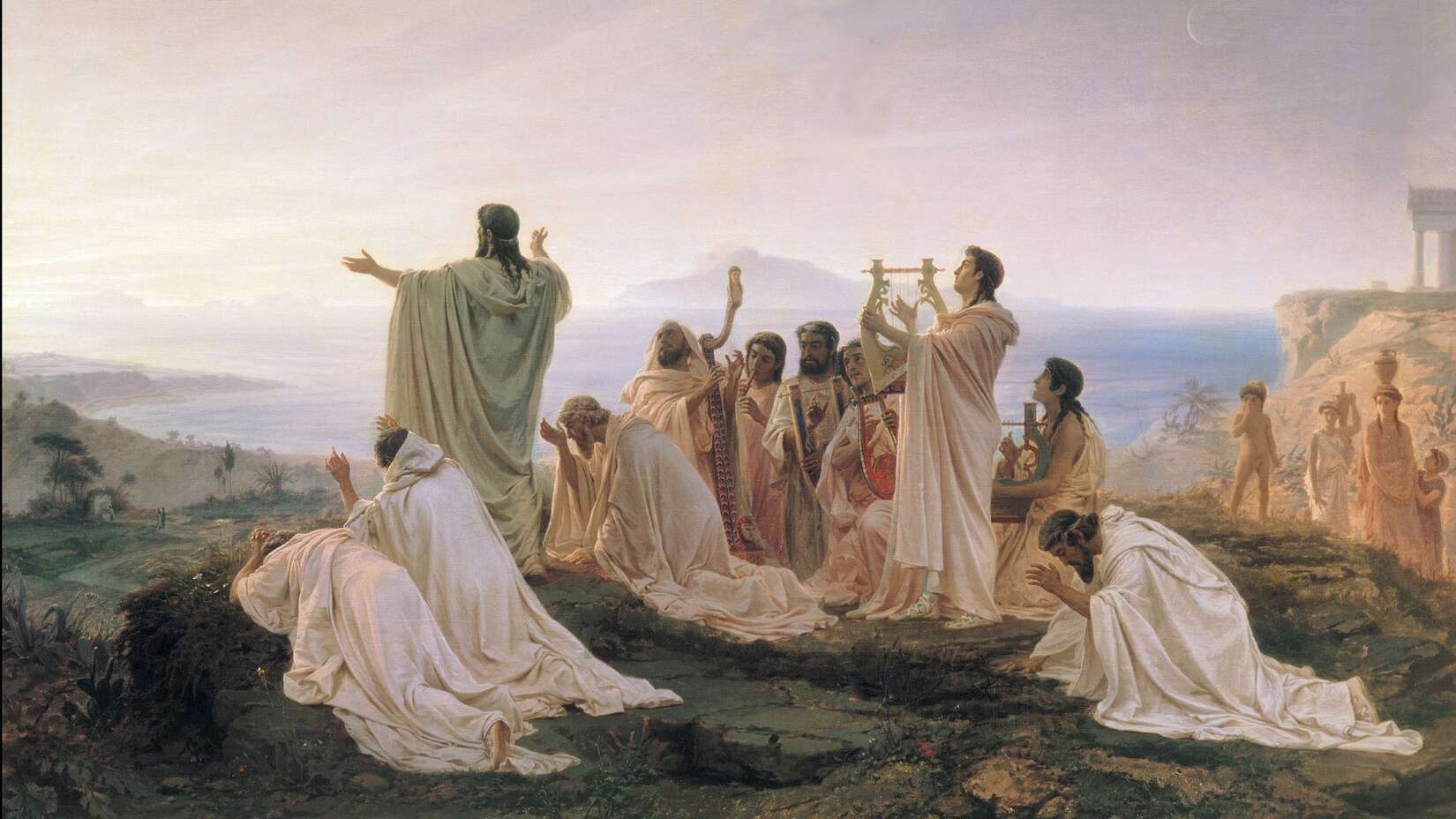

Even though the Pythagoreans (followers of Pythagoras) are often remembered for their profound influence on mathematics, mysticism, and cosmology, their influence extended beyond abstract thought and into the political realm, particularly in Magna Graecia (southern Italy) during the 6th and 5th centuries BCE. In ancient Greek cities such as Croton, Metapontum, and Tarentum, Pythagorean communities attempted to translate their philosophical ideals into political reality, with lasting consequences.
Pythagoras is believed to have migrated from Samos to Croton around 530 BCE. He founded a philosophical and religious school that sought to integrate a way of life based on virtue, harmony, and the pursuit of wisdom. The Pythagorean way of life emphasized asceticism, vegetarianism, the belief in the transmigration of souls, and a deep reverence for numbers and order. Members lived in close-knit communities that practiced mutual support, secrecy, and discipline.
The Pythagoreans did not merely contemplate abstract ideas—they believed their philosophical principles could, and should, shape society. They sought to bring their way of life to the citizens, promoting a vision of civic order that mirrored the harmony they perceived in the cosmos. They emphasized ethical governance, moderation, and justice. They often gained political power by advising local rulers or directly holding office.
This philosophical-political fusion was most prominent in Croton, where Pythagorean influence permeated the city’s government. While engaging in politics, the Pythagoreans established what some scholars describe as an aristocracy of the wise in southern Italy. It was a rule by those who had demonstrated moral and intellectual excellence.
The collapse of the Pythagorean order was not simply the result of bad fortune. It was a consequence of their bold ambitions. Initially, a secretive and philosophical brotherhood, the Pythagoreans gradually moved into politics. They attempted to reshape the daily life and moral framework of the cities they influenced.
They believed that society itself could be purified through strict discipline, communal living, and adherence to a higher sense of harmony. However, these ideals, imposed from above rather than naturally embraced, bred resentment among the wider population. To many ordinary citizens, the Pythagorean way of life seemed elitist, rigid, and foreign to their traditions.
Their political interventions, particularly against the Sybarites, further alienated them. Once a powerful and luxurious city, Sybaris had fallen into decadence, and the Pythagoreans supported its destruction by rival Croton. Though they viewed this as a moral victory, the violent outcome fueled popular anger.
The people, wary of a group that sought to control their governments and personal habits, eventually turned on them. Pythagorean meeting houses were attacked, members were killed or exiled, and the movement was shattered. The attempt to forcibly impose an ideal life cost the Pythagoreans their influence, leaving only scattered remnants of a once-powerful tradition.
Eventually, this discontent erupted into violent revolts. In Croton and other cities, anti-Pythagorean factions attacked their meeting places and expelled or killed members. Ancient sources, such as the philosopher Iamblichus and later writers, wrote that a wave of uprisings across Magna Graecia in the late 5th century BCE dismantled much of the Pythagorean political apparatus.

While the Pythagoreans found satisfaction in bringing their philosophical ideals to civic life, not all citizens shared their enthusiasm. Over time, resentment grew among segments of the population who saw Pythagorean rule as elitist and secretive. The exclusivity of their order, combined with their perceived aloofness, bred suspicion and hostility.
According to Plutarch in his work On the Daimonion of Socrates, one of the most tragic episodes in the history of the Pythagoreans occurred in Metapontion. When civil strife erupted and anti-Pythagorean sentiment spread, particularly incited by the followers of a man named Cylon, a group of Pythagoreans gathered in a house for a meeting. Their opponents set fire to the building, killing nearly all inside. Only two young Pythagorean men survived: Philolaus and Lysis, who escaped thanks to their strength and agility.
Philolaus eventually found refuge among the Leucanians. He later returned to help reorganize and strengthen the remnants of the Pythagorean brotherhood. Lysis, on the other hand, remained in secret for years. Later, however, the philosopher Gorgias in Thebes encountered him, as he mentions in his letters.

Despite these setbacks, Pythagorean ideas continued to influence ancient Greek thought, especially through the Neopythagorean and Neoplatonic traditions. While their direct political involvement waned, their model of a philosophically guided life remained influential among later philosophers such as Plato.
The Pythagoreans’ attempt to merge philosophy with politics represents one of the earliest known experiments in implementing a structured philosophical life as a basis for public governance. Though they faced resistance and eventual suppression, their legacy is a testament to the power—and peril—of attempting to align the polis with the cosmos.
